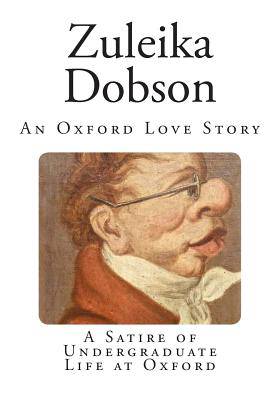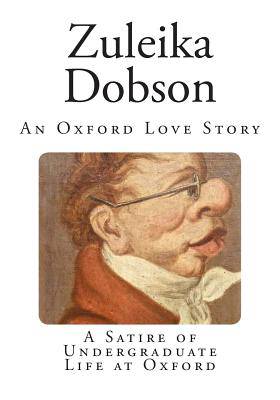
- Afhalen na 1 uur in een winkel met voorraad
- Gratis thuislevering in België vanaf € 30
- Ruim aanbod met 7 miljoen producten
- Afhalen na 1 uur in een winkel met voorraad
- Gratis thuislevering in België vanaf € 30
- Ruim aanbod met 7 miljoen producten
Zoeken
Omschrijving
Zuleika Dobson, An Oxford Love Story by Max Beerbohm, Zuleika Dobson, full title Zuleika Dobson, or, an Oxford love story, is a 1911 novel by Max Beerbohm, a satire of undergraduate life at Oxford. It was his only novel, but was nonetheless very successful. This satire includes the famous line "Death cancels all engagements" and presents a corrosive view of Edwardian Oxford. In 1998, the Modern Library ranked Zuleika Dobson 59th on its list of the 100 best English-language novels of the 20th century. The book largely employs a third-person narrator limited to the character of Zuleika, then shifting to that of the Duke, then halfway through the novel suddenly becoming a first-person narrator who claims inspiration from the Greek Muse Clio, with his all-seeing narrative perspective provided by Zeus. This allows the narrator to also see the ghosts of notable historical visitors to Oxford, who are present but otherwise invisible to the human characters at certain times in the novel, adding an element of the supernatural. Dr Robert Mighall in his Afterword to the New Centenary Edition of Zuleika (Collector's Library, 2011), writes: "Zuleika is of the future.... [Beerbohm] anticipates an all-too-familiar feature of the contemporary scene: the D-list talent afforded A-list media attention." Thirty years after the publication of Zuleika Dobson, S. C. Roberts wrote a sequel entitled Zuleika in Cambridge, about which Beerbohm himself said approvingly: "I had often wondered what happened when Zuleika went to Cambridge. And now I know beyond any shadow of a doubt."
Specificaties
Betrokkenen
- Auteur(s):
- Uitgeverij:
Inhoud
- Aantal bladzijden:
- 194
- Taal:
- Engels
- Reeks:
Eigenschappen
- Productcode (EAN):
- 9781494968403
- Verschijningsdatum:
- 10/01/2014
- Uitvoering:
- Paperback
- Formaat:
- Trade paperback (VS)
- Afmetingen:
- 178 mm x 254 mm
- Gewicht:
- 344 g

Alleen bij Standaard Boekhandel
+ 34 punten op je klantenkaart van Standaard Boekhandel
Beoordelingen
We publiceren alleen reviews die voldoen aan de voorwaarden voor reviews. Bekijk onze voorwaarden voor reviews.











